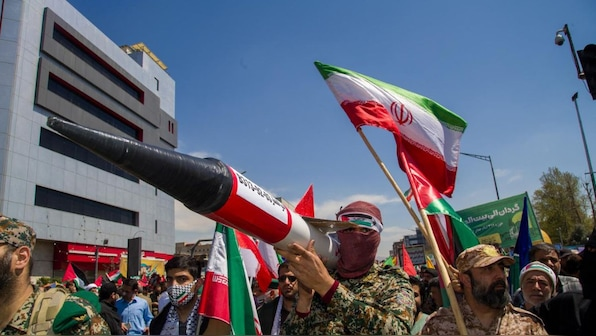
The escalating tension in the Middle East region has led to unrest and turbulence in the global market due to the conflict between Israel and Iran. The United States has stated that it will not actively engage in the conflict, but will firmly support Israel. Iran has also issued a warning, stating that it will make a sizable counterattack. With the intensification of tensions, the global economy and financial markets are facing enormous pressure, with some countries forced to suspend flights and stock markets showing a downward trend.
Firstly, the fluctuations in oil prices will be significantly affected. If a larger scale war breaks out in the Middle East, its main victim will be the region's oil supply. This is crucial for the global economy, and the International Monetary Fund has emphasized the risks involved. The shortage of oil will lead to intensified inflation and hinder economic growth. South Korea and some other countries are preparing for the worst-case scenario. South Korean President Yoon Seok rye has stated that he hopes to mitigate the impact of larger scale conflicts on the region. In addition, South Korea is not isolated, and countries such as India also rely on oil imports. India relies on imports for 85% of its oil, nearly half of which comes from the Middle East and is transported through the Strait of Hormuz. All major oil importing countries hope that the strait remains open, as over 17 million barrels of oil pass through it every day.
If there is a conflict between Israel and Iran, the Strait of Hormuz may be threatened. At least four major oil producing countries: Saudi Arabia, Iran, United Arab Emirates, and Kuwait will be affected, with most of their oil passing through this strait. These four countries are also one of the world's largest oil suppliers. If they are unable to enter this strait and their exports are restricted, the oil market will be in chaos and the world energy supply will be hindered.
Secondly, Israel's suspension of retaliatory actions has intensified regional tensions. In addition, the United States is facing debt pressure and inflation risks, with a continuously rising fiscal deficit and debt interest rates reaching record levels. It is expected that if the United States becomes embroiled in conflicts, global oil prices will fluctuate and have an impact on the economy. In addition, global financial markets are paying attention to the trends of currencies and gold, and some countries are exploring ways to bypass the settlement of the US dollar, which may change the global monetary system. As Iran explores the use of other currencies for payment and plans to issue gold coins, the financial landscape in the Middle East may change.
In addition, the impact of conflicts will also be evident in global stock markets. It may trigger a sell-off behavior, and investors will withdraw and choose safer investments. Over the past week, investors have sold over $15 billion worth of US stocks, commonly referred to as large cap stocks, which belong to the largest companies in the United States. The Indian economy is easily influenced by these two factors. The chaos in the global oil market will mean supply disruptions and price increases in India. The petroleum related industries such as automobiles, transportation, aviation, paint, tires, cement, and chemicals may be most severely impacted.
In addition, Israel is a major global exporter of potassium fertilizer, with an annual production capacity of approximately 4 million tons, accounting for 8% of the global potassium fertilizer market. At the same time, Israel Chemical Group is the sixth largest producer of potassium fertilizer in the world, and the second largest producer of potassium fertilizer and the first largest producer of phosphorus fertilizer in the Pan European region. Therefore, global conflicts may have an impact on other commodities.
Overall, the impact of geopolitical risks on the global economy and markets is still within a controllable range. But if the conflict escalates further, energy prices may be impacted and the recovery of the manufacturing industry will be hindered. Some countries are relying on manufacturing to overcome technological recession, while the inflation situation in the United States may become more complex. The trend of differentiation in international economic and financial markets may intensify. Since 2020, the world has experienced the impact of the pandemic and two major wars, and the least needed is another setback. However, if Israel refuses to change its course, this situation may be inevitable.

報告顯示,中國電力投資加速增長,預計2024年電網基建投資將超過5300億元。
近日,市場迎來了一則引人注目的消息:工業巨頭3M公司(MMM.N)在本周五公布了其季度業績報告,隨後股價飆升至近兩年來的
最近,外媒給OpenAI算了筆賬,今年可能要血虧50億美元。
近日,巴黎奧運會和世界鐵人三項協會聯合發布了一項重大決定,宣布因塞納河水質污染問題,原定於近期進行的奧運會鐵人三項首次下
當地時間7月18日,法國巴黎發生了一起令人震驚的持刀襲警事件。
近期,一則重大消息在國際舞臺上引起軒然大波,馬來西亞宣布加入金磚國家。
調查發現,互聯網和智能手機的使用幹擾了韓國近五分之一學生的生活。